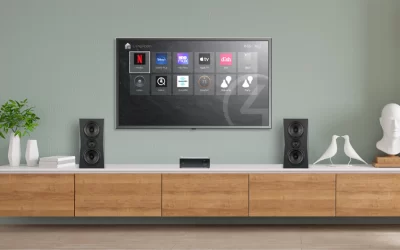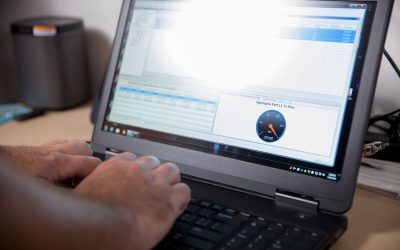Introduction
As the population of the world ages, it’s important to recognize the value of technology in improving quality of life for seniors. Smart technology for seniors can help with tasks like cooking and cleaning. Additionally, they provide peace of mind by monitoring health status. However, before you rush out and buy your grandmother an Amazon Echo Dot (or even worse: a smart TV), it’s important that you understand what she needs from her devices. Not all elderly people are tech-savvy. They may be overwhelmed by complex interfaces or lack the ability to use new technology effectively.
The Benefits of Smart Technology
Smart technology has revolutionized the way seniors live and age in place. With a variety of smart devices available today, seniors can enjoy numerous benefits, including enhanced independence, safety, and convenience. Smart technology has made it possible for seniors to control their homes remotely, monitor their health, and stay connected with loved ones. In addition, smart devices such as fall detection sensors, medication reminders, and emergency response systems can provide peace of mind for both seniors and their caregivers.
Smart technology has truly transformed the way seniors experience aging, allowing them to maintain their independence and live more fulfilling lives. Finally, smart technology allows families and friends to communicate more easily with their loved ones who live far away. This helps them feel less isolated from family life and making it easier for them to stay connected with those who matter most.

Staying connected: embracing smart technology for seamless communication with loved ones.
Types of Smart Technology for Seniors
Smart home systems are the most common form of smart technology for the elderly. These devices allow you to control your home’s temperature, lighting, and other functions from various interfaces. They can also be programmed to perform certain tasks automatically, such as turning on lights when it gets dark outside or adjusting the thermostat when you leave work late at night.
Medical alert systems allow you to call for help if something happens while you’re alone in your house. For example, if there’s an emergency like a fall or stroke that prevents you from getting up on your own. The device itself is small enough that it can be worn around the write like a watch. And when pressed or if a fall is detected, it will automatically connect with ambulance operators. Pre-registration of details means they know exactly where they need send help!
Home security systems monitor doors and windows while also detecting unusual sounds throughout different rooms within houses/apartments/condos etc. Some even come equipped with motion sensors which trigger alarms if someone tries breaking into one’s property without permission. This helps prevent theft because criminals won’t want risk being caught red handed stealing valuables.
The Challenges of Smart Technology
While smart technology can offer many benefits for seniors, there are also some challenges that need to be considered. One of the biggest challenges is the learning curve associated with new technology. Additionally, seniors may struggle to understand how to use smart devices, which can be frustrating. In addition, seniors may have physical limitations that make it difficult to interact with certain devices. This could be things such as small touch screens or buttons. Another challenge is the cost of smart technology, which may be prohibitive for some seniors. Finally, there are concerns around data privacy and security, which can be especially concerning for seniors who may be more vulnerable to scams or identity theft. Addressing these challenges will be key to ensuring that smart technology is accessible and beneficial for all seniors.
How to Choose the Right Smart Technology for the Elderly
Working with a home technology architect can be incredibly beneficial for seniors looking to embrace smart technology. A technology architect can help address the challenges of new technology by providing personalized training and support. They can also recommend devices that are specifically designed for seniors or that offer features that address physical limitations. In addition, a technology architect can help seniors navigate the cost of smart technology by providing recommendations that fit their budget and needs. Finally, a technology architect can help ensure that seniors’ data privacy and security are protected by recommending devices with robust security features and providing guidance on how to safely use and store sensitive information.
What are their current needs?
When considering smart technology for the elderly, it’s important to first understand their needs. The best way to do this is by asking questions and listening carefully. For example:
- What does your loved one want from a home automation system? Is it convenience or security that they’re after?
- How much time will they spend at home each day? If they are only there during the evenings or weekends, then there may not be much point in installing sensors that detect movement throughout the house because no one would be around to trigger them anyway.
- Do they have any physical limitations such as poor eyesight or hearing loss that could make using certain devices difficult or impossible (for example, using voice commands)? If so, then look into products with large buttons/keys/screens as well as those which offer alternative methods of control such as touchscreens or remotes instead of buttons located directly on devices themselves).
By working with a technology architect, seniors can feel confident and empowered to take advantage of all the benefits that smart technology has to offer.

For those with physical disabilities, smart home tech can make it easier to control their environment without having to rely on manual switches.
Smart Technology and Quality of Life
Smart technology has the potential to significantly improve the quality of life for the elderly. By enabling seniors to stay connected, engaged, and independent, smart technology can help combat social isolation and promote mental and emotional well-being. Smart devices can provide entertainment and cognitive stimulation, from playing games to streaming movies or music. In addition, smart home features like lighting and temperature control can help seniors create a comfortable and safe living environment, while devices like smart speakers and personal assistants can provide assistance with daily tasks. Finally, smart health monitoring devices can help seniors manage chronic conditions and detect health issues before they become serious. Overall, smart technology can be a game-changer for seniors, enhancing their quality of life and helping them age in place with dignity and independence.
The Role of Family and Caregivers
Family and caregivers play a crucial role in ensuring that seniors are able to fully benefit from smart technology. By offering support and guidance, family members and caregivers can help seniors overcome the challenges of learning new technology and feeling comfortable using it. They can also help select and set up smart devices that are tailored to seniors’ needs and preferences. In addition, caregivers can monitor seniors’ use of smart devices to ensure they are using them effectively and safely. Most importantly, family members and caregivers can provide emotional support and companionship, which is just as essential to seniors’ well-being as the physical benefits of smart technology. By working together with family and caregivers, seniors can fully embrace smart technology and experience all the benefits that it has to offer.
The Future of Smart Technology for the Elderly
The future of smart technology for the elderly is bright. The potential to improve quality of life through automation is enormous, and there are many ways in which this can be achieved. However, as with any emerging technology, there are still many unanswered questions about how best to use it–and whether or not it should be used at all. As we move forward into an increasingly automated world, it is important that we continue researching how best to harness these technologies so that they can benefit everyone equally.

Smart technology for seniors can help people engage in social activities through video chat, online communities, and virtual events.
Conclusion
The elderly are often overlooked in the world of technology, but they can benefit greatly from smart devices. The importance of understanding the needs and wants of older generations when it comes to technology is crucial in order to create products that will be useful and relevant to them. This is especially true when it comes to designing smart devices, which have the potential to improve quality of life for those who need assistance with daily activities.
If you have a senior in your life, consider reaching out to exploring smart technology options. By working together, we can ensure that seniors are able to take advantage of all the benefits that smart technology has to offer, and enjoy a fulfilling and comfortable aging experience.



0 Comments